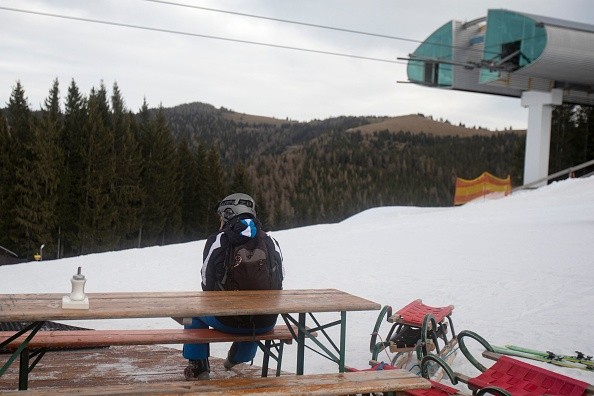The unusual warmth in Europe resulted in a lack of snow, affecting many ski resorts. According to a recent report, this year also recorded the warmest January in portions of Europe.
Many ski resorts in Europe countries suffered from unseasonably warm conditions. The warmth last year affected the ski resorts and ski enthusiasts.
The Guardian recently reported that eight European countries recorded the warmest beginning of January. The extreme weather event resulted in warmer conditions.
According to the report from climatologist Maximiliano Herrera, the warmest beginning of the year unfolded in Belarus, the Netherlands, Lithuania, Poland, the Czech Republic, Denmark, and Latvia.
The extreme weather events, including heat waves and unseasonably warm weather, helped to bring milder weather conditions.
In Spain, the report added that the country suffered the hottest year in 2022. As a result, less rain and warm conditions could impact important reservoirs, and extreme temperatures could bring health risks to vulnerable people.
Ski resorts

Snow is essential in ski resorts and for ski enthusiasts. However, less snow and unusual weather conditions could affect the development of snow.
Skiing and snowboarding are popular hobbies in European countries during the snow season. It is also a source of business for small communities for tourism.
According to AccuWeather's recent report, many ski resorts decided to shut down their operations due to the unusual warmth in Europe unless they resort to costly artificial snow.
In a report from The Independent UK, the cold blast of waves in December helped to bring snow. However, rain and warming temperatures made ski resorts with a recorded lack of snow difficult.
The report explained that French Pyrenees and the Alps were heavily impacted and struggled for snow. Meanwhile, Switzerland's famous World Cup Adelboden would turn to artificial snow this year.
The challenging weather conditions showed to be difficult for skiing resorts dependent on the snow. AccuWeather also added that about 7,500 ski slopes in France decided to shut down due to a lack of snow.
Challenging warm conditions
In the United Kingdom, the previous report added that the country would experience the return of heavy snow and subzero temperatures in the second half of January. Recently, the Guardian also reported that the south of England experienced exceptional weather conditions.
Meanwhile, AccuWeather explained that the forecast for snow in the affected regions could expect mild weather conditions and less snow.
Climate change and global warming can cause the rapid rise of temperatures globally, with warming conditions in portions of Europe.
The beginning of the year recorded the warmest temperatures in portions of Europe, raising concerns over the intensity of extreme weather events, including heat waves and heavy rain. Records were also broken for this year's warmest January.
Extreme weather conditions could impact humans and animals. Wildlife not used to extreme heat conditions would result in health risks, affecting their habitats and existence.
As a result, the commitment of countries to develop policies to reduce greenhouse gas emissions is essential to sustainable goals.
Related Article : Heavy Snow and Freezing Weather Conditions in UK Expected to Return Second Half of January 2023
For more similar stories, don't forget to follow Nature News.
© 2025 NatureWorldNews.com All rights reserved. Do not reproduce without permission.





